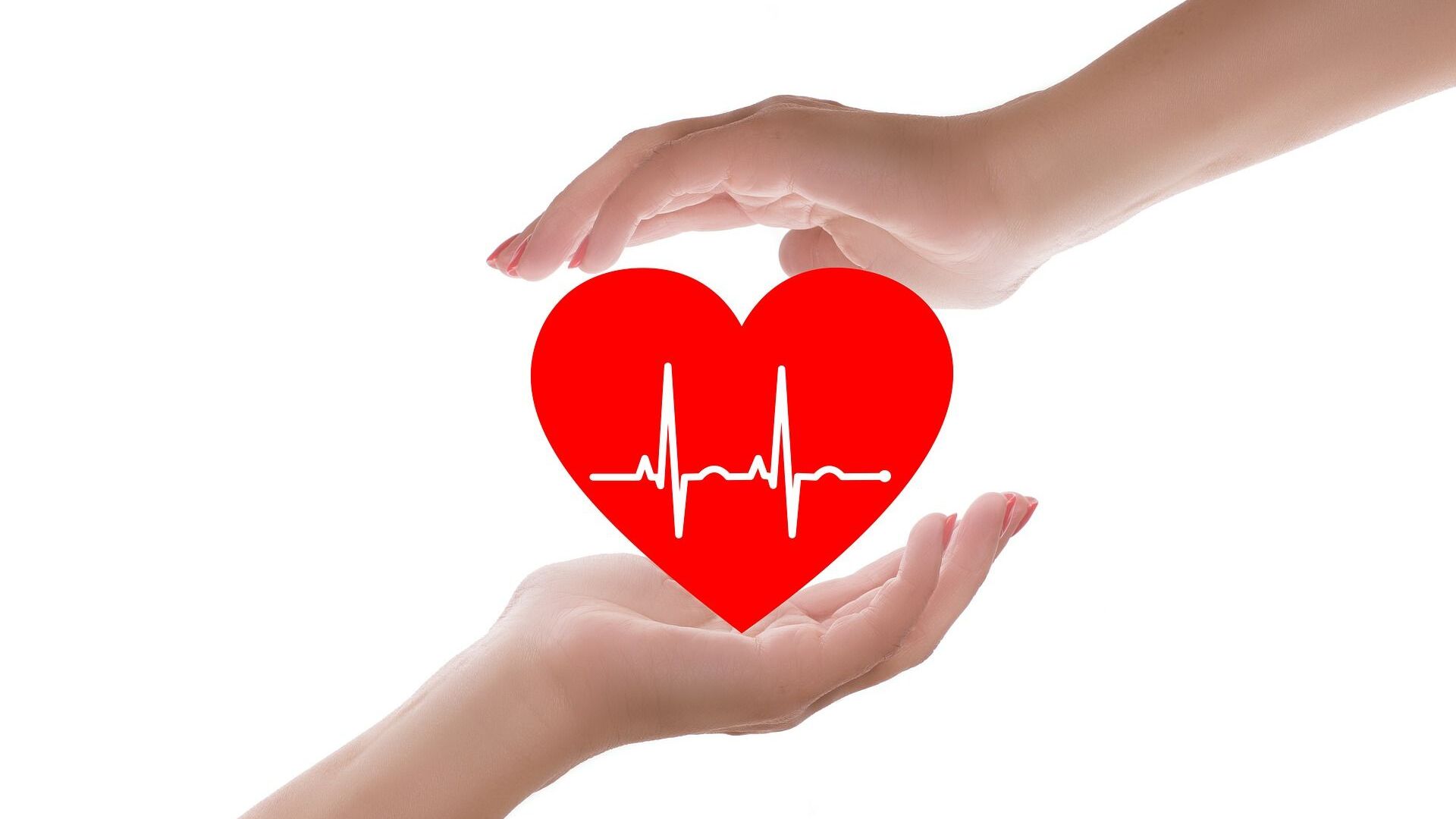https://sputnikglobe.com/20220930/love-cures-almost-all-oxytocin-may-help-mend-broken-hearts-study-finds-1101397701.html
Love Cures (Almost) All? Oxytocin May Help Mend Broken Hearts, Study Finds
Love Cures (Almost) All? Oxytocin May Help Mend Broken Hearts, Study Finds
Sputnik International
In a study examining “cryoinjured” hearts of zebrafish, scientists discovered a link between elevated oxytocin and the stimulation of healing. Oxytocin, the... 30.09.2022, Sputnik International
2022-09-30T22:53+0000
2022-09-30T22:53+0000
2022-09-30T22:53+0000
science & tech
study
love
heart attack
https://cdn1.img.sputnikglobe.com/img/107763/15/1077631555_0:59:1920:1139_1920x0_80_0_0_7feb6306c6c0084cce48935ff2b3f6fc.jpg
Based on findings from experiments on zebrafish, which have a marked ability to repair themselves after injury, and lab-grown human tissue, scientists at Michigan State University found that the love hormone oxytocin boosts the production of stem cells, or the body’s cellular building blocks, potentially accelerating healing in humans.Dr. Aitor Aguirre, an assistant professor at the Department of Biomedical Engineering and a senior author of the study, said in a media release that the hormone is “capable of activating heart repair mechanisms in injured hearts in zebrafish and human cell cultures, opening the door to potential new therapies for heart regeneration in humans.”Previous studies looking at cardiomyocytes have shown that a subset of cells in the heart’s outer layer, called Epicardium-derived Progenitor Cells (EpiPCs), can undergo reprogramming to function like stem cells, regenerating heart cells like “the stonemasons that repaired cathedrals in Europe in the Middle Ages,” explained Aguirre.The production of EpiPCs isn’t capable of regenerating heart tissues under natural conditions for humans. However, information gleaned from the cellular activity of zebrafish, which have been known to regenerate up to a quarter of their hearts after attacks from predators, may help.According to the new research with zebrafish, oxytocin causes stem cells from the heart’s outer layer to migrate into the middle layers where it develops into muscle that generates contractions in the heart. This is where cardiomyocytes (cardiac muscle cells) die off in great numbers after cardiac arrest.Crucially, the researchers found oxytocin has a similar effect on cultured human tissue. It turned human Induced Pluripotent Stem Cells (hIPSCs) into EpiPCs.The team wants to turn their attention toward oxytocin in humans after cardiac injury, with Aguirre pointing out that because oxytocin is shortlived in circulation, its effects in humans might be lessened.According to Aguirre, this may be worked around with drugs designed with longer half-lives or higher potency.
https://sputnikglobe.com/20220928/chronically-unhappy-it-could-be-killing-you-study-finds-1101293419.html
Sputnik International
feedback@sputniknews.com
+74956456601
MIA „Rossiya Segodnya“
2022
News
en_EN
Sputnik International
feedback@sputniknews.com
+74956456601
MIA „Rossiya Segodnya“
Sputnik International
feedback@sputniknews.com
+74956456601
MIA „Rossiya Segodnya“
science & tech, study, love, heart attack
science & tech, study, love, heart attack
Love Cures (Almost) All? Oxytocin May Help Mend Broken Hearts, Study Finds
In a study examining “cryoinjured” hearts of zebrafish, scientists discovered a link between elevated oxytocin and the stimulation of healing. Oxytocin, the “love chemical” released in humans during sex, childbirth, and social bonding, may now have a new future in treatment plans for heart attack survivors.
Based on findings from experiments on zebrafish, which have a marked ability to repair themselves after injury, and lab-grown human tissue, scientists at Michigan State University found that the love hormone oxytocin boosts the production of
stem cells, or the body’s cellular building blocks, potentially accelerating healing in humans.
Dr. Aitor Aguirre, an assistant professor at the Department of Biomedical Engineering and a senior author of the study, said in a media release that the hormone is “capable of activating heart repair mechanisms in injured hearts in zebrafish and human cell cultures, opening the door to potential new therapies for heart regeneration in humans.”
Previous studies looking at cardiomyocytes have shown that a subset of cells in the heart’s outer layer, called Epicardium-derived Progenitor Cells (EpiPCs), can undergo reprogramming to function like stem cells, regenerating heart cells like “the stonemasons that repaired cathedrals in Europe in the Middle Ages,”
explained Aguirre.The production of EpiPCs isn’t capable of regenerating heart tissues under natural conditions for humans. However, information gleaned from the cellular activity of zebrafish, which have been known to regenerate up to a quarter of their hearts after attacks from predators, may help.
According to the new research with zebrafish, oxytocin causes stem cells from the heart’s outer layer to migrate into the middle layers where it develops into muscle that generates contractions in the heart. This is where cardiomyocytes (cardiac muscle cells) die off in great numbers after cardiac arrest.

28 September 2022, 01:16 GMT
Crucially, the researchers found oxytocin has a similar effect on cultured human tissue. It turned human Induced Pluripotent Stem Cells
(hIPSCs) into EpiPCs.
“These results show that it is likely that the stimulation by oxytocin of EpiPC production is evolutionary conserved in humans to a significant extent. Oxytocin is widely used in the clinic for other reasons, so repurposing for patients after heart damage is not a long stretch of the imagination. Even if heart regeneration is only partial, the benefits for patients could be enormous,” Aguirre says.
The team wants to turn their attention toward oxytocin in humans after cardiac injury, with Aguirre pointing out that because oxytocin is shortlived in circulation, its effects in humans might be lessened.
According to Aguirre, this may be worked around with drugs designed with longer half-lives or higher potency.


